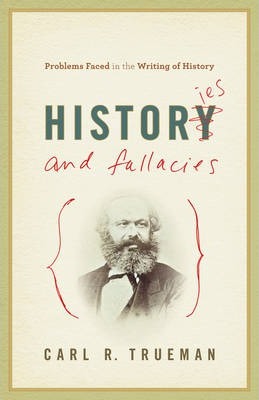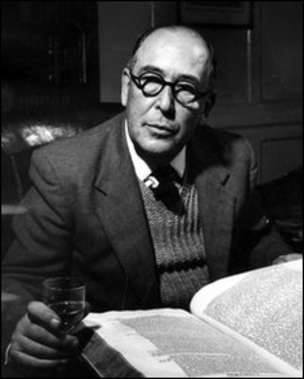C. S. Lewis’s path to Christian faith was helped along mightily by certain authors. In his autobiography, Surprised by Joy, he tells of his discovery of G. K. Chesterton’s writings and says specifically, “I read Chesterton’s Everlasting Man and for the first time saw the whole Christian outline of history set out in a form that seemed to me to make sense. You will remember that I already thought Chesterton the most sensible man alive ‘apart from his Christianity.’ Now, I veritably believe, I thought—I didn’t of course say; words would have revealed the nonsense—that Christianity itself was very sensible ‘apart from its Christianity.’”
The value that Chesterton brought in that book was the “outline of history” from which Lewis could see for the first time how a Christian worldview could make a coherent statement about the development of history, how one could view all of history through the Christian lens.
Other lenses exist. One book I’ve used in my historiography course, Carl Trueman’s Histories and Fallacies, explicitly shows how Karl Marx and his apologists crafted what they considered a coherent view of history. Trueman explains:
“Marxism was never simply a political program. Like Nazism or fascism, it was rather a comprehensive way of looking at the world.“
It affected all aspects of societal culture: art, architecture, music, literature, science, economics. And yes, even history.
“Indeed, it offered a comprehensive explanatory scheme that not only explained the past but also—crucially—allowed for the prediction in broad terms of the future as well.“
All explanatory schemes are not equal. I reject the Marxist explanation and accept the Christian one. Yet there is a danger, and Lewis saw the danger. Yes, he appreciated Chesterton’s insight. Yes, as a Christian, he believed that God was working in history. He wrote, “I do not dispute that history is a story written by the finger of God.” Yet he added this comment: “But have we the text?”
Herbert Schlossberg’s Idols for Destruction includes a chapter called “Idols of History” in which he describes the error of “historicism,” which is a false use of history.
“The idolatries of history exalt an age (past, present, or future), or a process, or an institution, or a class, or a trend and make it normative. They place the entire meaning of life within the historical process or some part of it, allowing nothing extrinsic to it. History is the whole show.“
Schlossberg continues:
“Just as man cannot understand history by reference to anything beyond it, so is he powerless to struggle against anything that history has a mind to accomplish. Historicism deifies time, making it an idol. Time will unfold all things, it says, in a way that is inevitably right no matter what happens.“
Lewis sounded the same warning for historians who seek to interpret history: “Some who in general deserve to be called true historians are betrayed into writing as if nothing failed or succeeded that did not somehow deserve to do so. We must guard against the emotional overtones of a phrase like the ‘judgement of history.’”
That would be a type of determinism that would deny the thousands (shall we say millions?) of individual choices being made throughout history—choices that were not predetermined but the result of man’s free will. Secularists can fall into that error from their particular worldview: the Marxist explanatory scheme is only one example.
Yet Christians can make the same mistake. Lewis continues his warning, more specifically for Christians:
What appears, on Christian premises, to be true in the Historicist’s position is this. Since all things happen either by the divine will or at least by the divine permission, it follows that the total content of time must in its own nature be a revelation of God’s wisdom, justice, and mercy.
History is, in that sense, a perpetual Evangel, a story written by the finger of God. If, by one miracle, the total content of time were spread out before me, and if, by another, I were able to hold all that infinity of events in my mind and if, by a third, God were pleased to comment on it so that I could understand it, then, to be sure, I could do what the Historicist says he is doing. I could read the meaning, discern the pattern. Yes; and if the sky fell we should all catch larks.
That comment is the lead-in to Lewis’s poignant statement that I quoted earlier: “I do not dispute that History is a story written by the finger of God. But have we the text?”
What interests me is the tension between seeing all of history through the Christian lens, yet somehow avoiding the error of historicism. Lewis obviously received the overarching theme of Chesterton’s Everlasting Man, yet also saw the human limitations in discerning when and how God intervened and/or directed historical events. I believe in both: the ability to evaluate all of history through my Christian faith and the danger of falling into a type of Christian historicism that attempts to make all things that have happened exactly what God wanted to happen.
This tension is what lies behind my current research and what I hope will become journal articles and/or a book that deal with this subject as part of an overall investigation of Lewis’s insights into history and how Christians should understand it.




